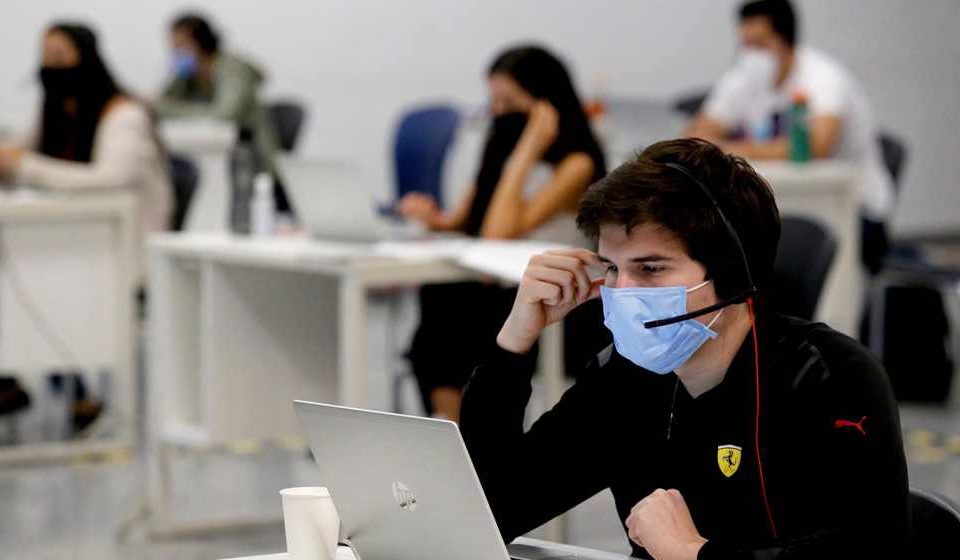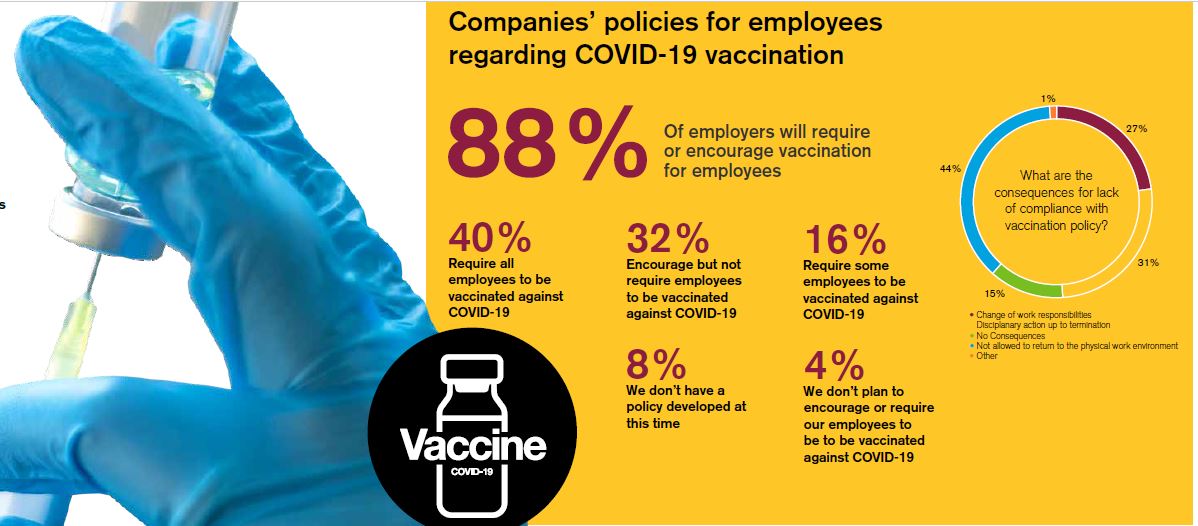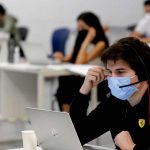35% of Americans could lose their jobs if they refuse to take the vaccines, new Rockefeller Foundation survey shows

As of Sunday, about 140 million people — 42.2% of the population — have received at least one dose of a Covid-19 vaccine. Another 95 million people — about 28.5% of the population — have been fully vaccinated, according to the data from The Centers for Disease Control and Prevention (CDC).
With millions of employees currently working from home, some cannot wait to return back to the office due to work-from-home fatigue. However, many employees may not be allowed to return back to work unless they show proof of vaccination.
According to a new comprehensive survey released Thursday by the Rockefeller Foundation, the majority of US companies will require workers to provide proof of vaccination before they allowed back into the office. According to the survey:
“35% of businesses said disciplinary actions are on the table, including the possibility of termination, for those who refuse vaccines.”
However, many businesses may face legal challenges. The Federal law prohibits employers and others from requiring vaccination with a Covid-19 vaccine distributed under the emergency use authorizations (EUA) and still not yet licensed by the FDA.
Because the current coronavirus vaccines have not been clinically approved by the FDA, “the federal law provides that, at least until the vaccine is licensed, individuals must have the option to accept or decline to be vaccinated,” Stat News reported.
Meanwhile, 65% of businesses said they will offer some kind of incentive for employees to get vaccinated, while 63% said they will require proof of vaccination before workers can return to the office.
The survey, which was conducted by Arizona State University’s College of Health Solutions with support from The Rockefeller Foundation, finds that nearly 9 out of 10 employers in the United States and the UK plan to encourage or require vaccination for employees and nearly 7 out of 10 are currently performing Covid-19 testing for their employees.
Overall, 44% will require all employees to get vaccinated, 31% will just encourage vaccinations and 14% will require some employees to get vaccinated. The survey sampled responses of 957 businesses across 24 industries. Most of the respondents were US businesses with 250 employees or more. “Even after employees have returned to the office, testing will remain a critical piece of the safety plan provided by most employers.
“More than one year into the Covid-19 crisis, it’s clear that employers across the United States and the UK are now taking a more proactive role and creating their own policies to manage the pandemic,” said Mara Aspinall, Project Co-Lead, Professor of Practice at Arizona State University’s College of Health Solutions, and Advisor to The Rockefeller Foundation. “In making the physical workplace as safe as possible, almost 70% of employers surveyed are testing some or all of their workforce and nearly 90% say that they will require or encourage Covid-19 vaccination in the months ahead.”
As businesses look ahead, roughly two-thirds of employers are planning to allow employees to work from home full-time through 2021, and 73% intend to offer flexible work arrangements when the pandemic is over. However, 73% of businesses want employees to work from the office at least 20 hours a week.
Testing still remains critical to employers with 70% of respondents currently conducting Covid tests that are mostly mandatory.
In terms of employee well-being, the corporate respondents said burnout increased 54% and mental health concerns overall increased 59%. However, morale and productivity also both when up by nearly 50%.
Looking forward, 66% of employers are planning to allow employees to work from home full-time through 2021, and 73% intend to offer flexible work arrangements when the pandemic is over. However, 73% of businesses want employees to work from the office at least 20 hours a week.
“This is not just a bubble that goes back to ‘normal’, there will be some positive flexibility after the pandemic ends and we go back to in-person work,” said Mara G. Aspinall, a professor at Arizona State University’s College of Health Solutions and one of the authors of the survey.
Employees are mainly concerned about their personal health, risk of infection and safety of the workplace, according to the survey. Thirty-eight percent of employees want to return eventually but not immediately and about one quarter said they are reluctant to return at all, according to the businesses that responded to the survey.
“The pandemic has changed the traditional office environment in many ways, possibly forever, yet a majority of employers are indicating they see real value in employees continuing to interact face-to-face,” Nathaniel L. Wade, a co-author of the study who is also affiliated with ASU’s College of Health Solutions. “We really wanted to make sure we’re giving public information to help people make good decisions.”
Most employees, about 51%, would prefer to wait until the government or health agencies allow them to return to work, and about 47% said they would return to in-person work when the entire workforce is vaccinated.
“Employers have been relatively quiet in the pandemic, we’re now entering the next phase where employers are creating their own policies so that employees can go safely and sustainably back to the workplace,” Aspinall said. “People want to get back to normal, but they want to do it in a safe way.”


